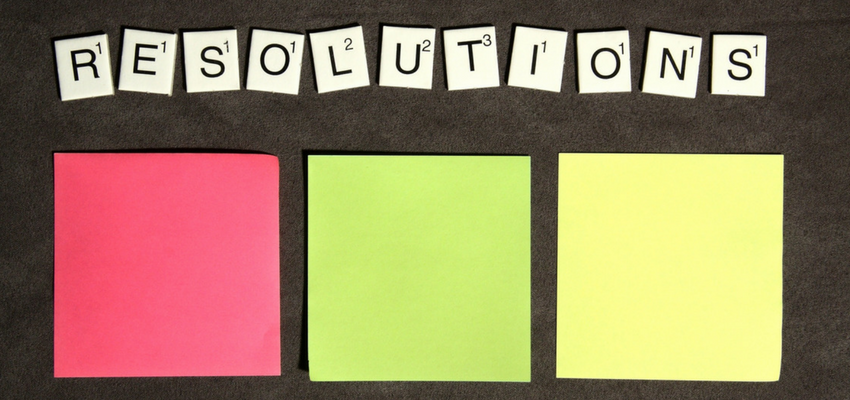
With 2018 now underway, many of us have turned our attention toward New Year’s resolutions. Some take this more seriously than others, but we can all agree that it’s nice to take a fresh year as an opportunity for self-improvement.
You might have a goal of losing 20 pounds, reading a book every month, spending more time with family, or any number of other things. But the New Year, and the traditions of resolutions, gives you a chance to really focus on how to turn that goal from a hope or a plan into a reality.
We’ve gathered a few nice tips from various pieces on psychology and motivation that will help you succeed and complete your New Year’s resolutions.
Repeat The Resolution Daily
This is a fascinating tip – about as simple as they come and yet one we’d never thought of before (and we’re betting most others haven’t thought of either). It was recommended in an article putting forth six secrets of people who actually keep their New Year’s resolutions, and came from a rabbi named Shlomo Zalman Bregman.
The rabbi believes he was successful with his resolution (which was to engage more with his social media and website users) because each morning he wrote the goal down again.
As he put it, it’s not enough to simply make a mental note or write down a goal at the beginning of the year.
Doing it this way keeps the goal fresh, making it a daily effort as opposed to a vague ideal.
Seek Accountability
This is another tip from the same article just cited, and comes from a businesswoman names Jennifer Snyder.
Snyder discussed the idea of weekly meetings with other business leaders in which they’d go over weekly goals; she also mentioned the idea of holding herself accountable via quarterly check-ins. These are great ideas for someone with the discipline to hold him or herself accountable – but you could also take the idea of seeking accountability further by allowing others to help you.
Find a family member or friend who will check in with you about your goals, or even try to meet them with you. This way you’ll be accountable not just to yourself whenever you decide to take stock of your progress, but to someone else as well.
Learn Emotional Discipline
We’re borrowing this idea specifically from an article about the psychology of poker players, though it’s certainly more broadly applicable as well. The article discusses the idea of using meditation and breathing exercises (like Star Trek’s Mr. Spock, as it says) to learn how to keep emotion in check.
It’s easy to see how this might help in poker, but the truth is it can benefit you significantly in any experience that induces stress, or even just doubt.
When you’re struggling to reach a goal that’s part of your resolution, or when you think it might be easier to give up, practiced emotional discipline can keep you on track. You can learn to take deep breaths or even try yoga techniques to center yourself, calm your mind, and refocus your energies.
Give Yourself Rewards
A lot of New Year’s resolutions focus on one vague or overarching goal. Thus, it can be a little bit difficult to track progress toward that goal.
However, you should try to do just that, so that you can give yourself little rewards along the way.
One good idea is to focus on rewards that have nothing to do with the actual resolution. So for instance if you’re trying to lose weight, don’t treat yourself to a pizza after you’ve had a productive week. Pizza isn’t a bad idea though if you’re measuring progress toward a goal that has nothing to do with fitness or health.
Otherwise, just focus on something innocent and indulgent that you like, such as buying yourself a massage after a month or so of good progress.
Evaluate Yourself Honestly
This isn’t a complicated idea necessarily, but we actually got it from an article on the psychology of persistence in golf. Specifically the tip was to evaluate your performance honestly so as to improve weaker areas.
It’s easy to imagine this approach with golf, but really it could apply to just about any kind of New Year’s resolution.
For instance, if your goal is to lose weight or follow a healthier diet plan, and you’ve cheated once or twice over the course of the week, don’t block out the fact that you weren’t as diligent as you could have been.
Instead, recognize the issue, evaluate your progress honestly, and try to find ways to avoid similar slip-ups in the future.


